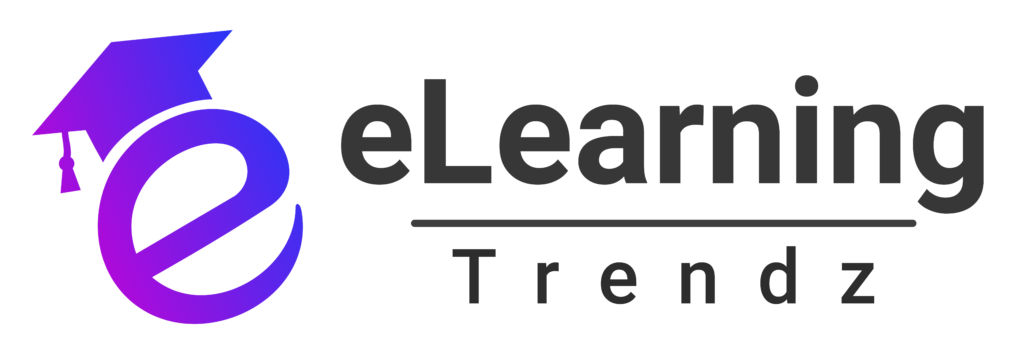In 2025, as industries continue to evolve and job markets become increasingly skills-based, micro-credentials in LMS are set to play a crucial role in certifying the specific skills that employees acquire. These digital badges are becoming a recognized standard for demonstrating proficiency in a given area. With the integration of technologies like adaptive learning personalised training and generative AI in eLearning creating smart adaptive courses, micro-credentials are taking personalized learning to new heights. In this article, we explore the growing importance of micro-credentials, how they integrate with LMS, and their potential to revolutionize skills certification in 2025.
What Are Micro-credentials in LMS?
Micro-credentials are digital certifications that validate an individual’s expertise in a specific skill or competency. Unlike traditional degrees, which often represent broad academic knowledge, micro-credentials focus on specialized skills that can be directly applied in the workplace. In an LMS, micro-credentials are often awarded as digital badges that learners can display on resumes, LinkedIn profiles, or professional portfolios.
These badges serve as tangible proof of achievement, providing a way for learners to showcase their progress and skills to employers or other educational institutions. By offering personalized learning experiences and certification, LMS platforms help learners focus on acquiring the skills that matter most for their career development.
The Growing Importance of Micro-credentials in 2025
In 2025, micro-credentials are becoming an essential component of the education and professional development landscape. As industries continue to adopt new technologies and rapidly change, employers are seeking ways to assess the specific skills that workers bring to the table. Traditional qualifications often fail to keep up with the fast pace of technological advancements, which is where micro-credentials come in.
These credentials provide a more agile way of validating competencies that are directly relevant to job roles. Learners can acquire micro-credentials for skills such as data analysis, cybersecurity, digital marketing, or leadership, and quickly demonstrate their ability to apply these skills in real-world situations. This flexibility benefits both employees and employers, ensuring that the workforce stays equipped with the skills needed to thrive in an increasingly digital world.
How Micro-credentials Integrate with Adaptive Learning Personalised Training
One of the major advantages of micro-credentials is their ability to seamlessly integrate with adaptive learning personalised training systems. Adaptive learning uses algorithms and data analytics to tailor learning experiences to each individual’s needs, ensuring that they receive the right content at the right time. This makes it an ideal platform for issuing micro-credentials.
Adaptive learning systems can personalize the learning journey by adjusting the pace, complexity, and content based on the learner’s progress and proficiency. As learners reach milestones or master a particular skill, they can be awarded micro-credentials as a way to certify their expertise. This dynamic approach ensures that each learner has the opportunity to earn credentials that reflect their true abilities and achievements.
Generative AI in eLearning: Creating Smart Adaptive Courses
Another key driver behind the rise of micro-credentials in LMS is generative AI in eLearning creating smart adaptive courses. Generative AI uses data and algorithms to automatically create and adapt learning content in real time. This includes personalized quizzes, simulations, and practical exercises tailored to a learner’s current level of understanding.
By integrating AI with micro-credentials, learners can receive immediate recognition for their achievements. For example, after completing an AI-generated scenario-based simulation, a learner may receive a digital badge as proof of their competence. These AI-powered systems make it easier for learners to progress through personalized courses, earn relevant micro-credentials, and apply their newly acquired skills to their professional roles.
Affordable LMS Alternatives for Micro-credentials
While micro-credentials are typically associated with high-end enterprise LMS platforms, many affordable LMS alternatives now provide organizations with the tools they need to implement micro-credentialing programs at a fraction of the cost. These alternatives allow companies of all sizes to offer personalized learning paths and issue micro-credentials to employees or learners.
Some affordable LMS platforms include features such as:
- Customizable course templates for various industries
- Built-in digital credentialing systems for issuing micro-credentials
- Analytics tools for tracking learner progress and achievements
- Social learning features for fostering engagement and community
These alternatives are perfect for small businesses or educational institutions that want to provide affordable, scalable micro-credentialing solutions. With these tools, organizations can deliver effective, personalized training while ensuring that learners earn verifiable skills certifications at their own pace.
Benefits of Micro-credentials in LMS
Micro-credentials offer a wide range of benefits for both learners and organizations:
- For Learners: Micro-credentials provide a way for learners to showcase their skills and demonstrate their value to employers. They allow learners to build a portfolio of accomplishments, which can help them advance in their careers.
- For Employers: Micro-credentials help employers identify candidates with specific, job-relevant skills. By integrating these credentials into the recruitment process, employers can ensure they are hiring the most qualified individuals for the job.
- For Organizations: Organizations can use micro-credentials as part of their employee development programs, recognizing and rewarding employees for acquiring new skills and achieving performance goals.
The Future of Micro-credentials in LMS
As we move into 2025 and beyond, the role of micro-credentials in LMS will continue to grow. With the increasing integration of adaptive learning personalised training and generative AI in eLearning creating smart adaptive courses, micro-credentials will become an integral part of the learning and certification ecosystem. These digital badges will serve as proof of competence, offering an alternative to traditional degrees and diplomas.
The future of micro-credentials will likely see a rise in industry-specific certifications and global recognition of these credentials across multiple sectors. With the increasing demand for specialized skills, micro-credentials will be a key tool for ensuring that employees are continuously learning and staying relevant in their fields.
Conclusion: The Power of Micro-credentials in 2025
Micro-credentials are revolutionizing the way skills are certified in 2025. By integrating with adaptive learning personalised training and leveraging generative AI in eLearning creating smart adaptive courses, organizations can provide personalized, competency-based education that leads to verifiable, meaningful credentials. With the availability of affordable LMS alternatives, micro-credentials are no longer limited to large corporations; they are now accessible to organizations of all sizes, empowering both employees and employers to thrive in today’s fast-paced, skills-driven job market.













